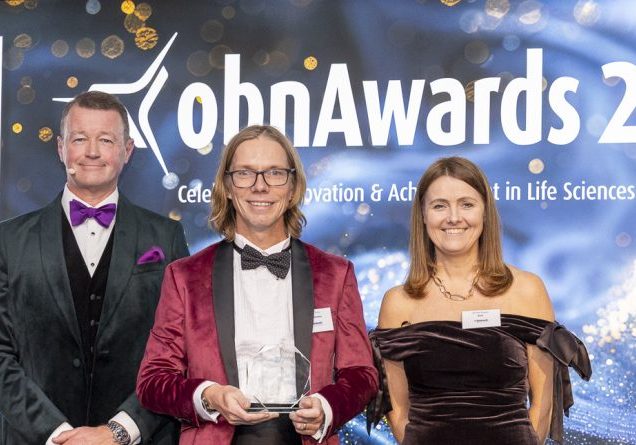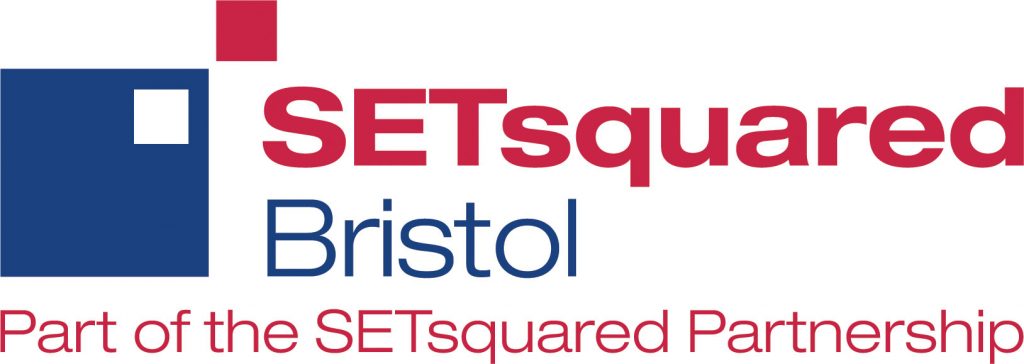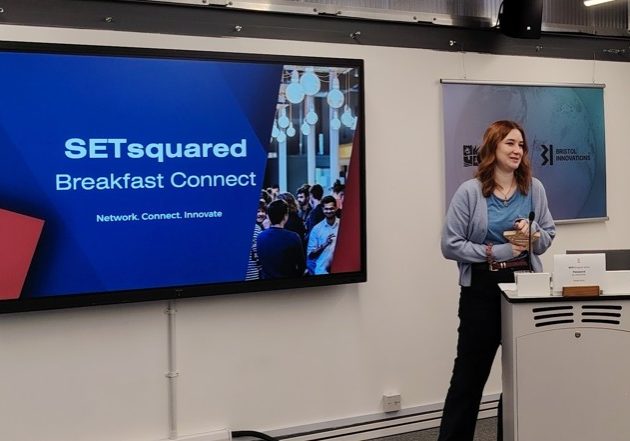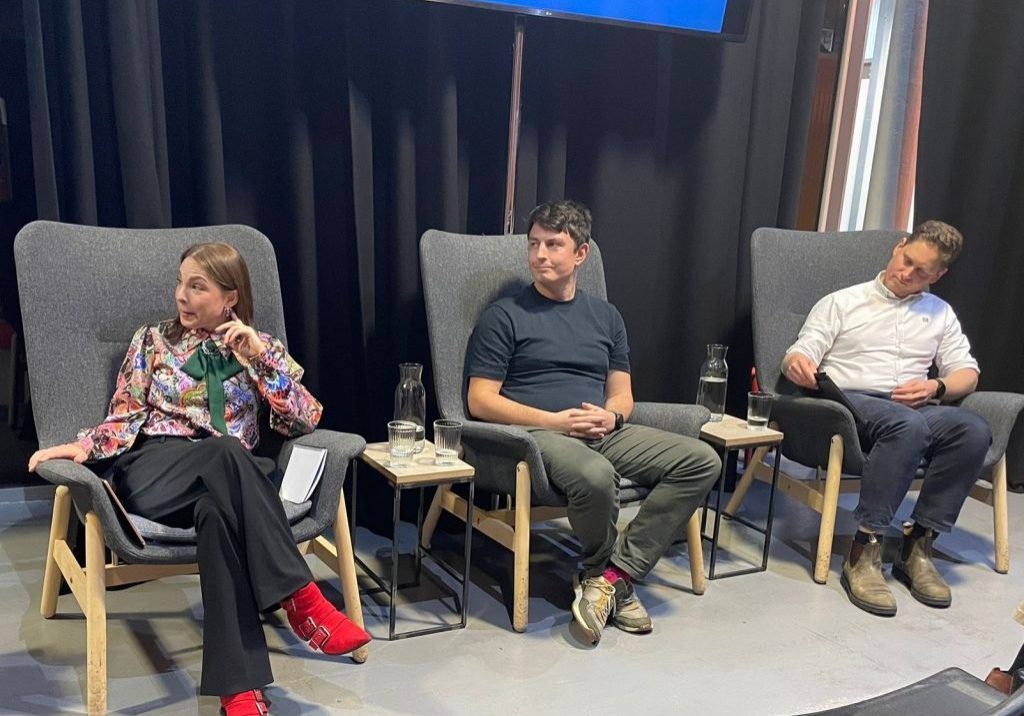SETsquared Bristol Case Study – ELEM BioTech: modelling, simulation and virtual trials at the heart of tomorrow’s medicine
Posted by
SETsquared Bristol
To help our aspiring entrepreneurs and future SETsquared Bristol members, we are showcasing a number of case studies demonstrating the breadth of tech at SETsquared Bristol and what it takes to achieve success.
We had a chat with ELEM BioTech CEO, Chris Morton…
Tell us about your product.
At ELEM, we virtualise medical trials and patients. Our Virtual Humans are extreme biomedical simulation platforms that use advanced mathematical modelling to predict treatment outcomes in real patient conditions. Using Virtual Heart, our first platform which is deployed on supercomputers, you will model an individual’s heart and see what effect diseases will have on the organ function, how a disease may evolve and which is the best treatment for the patient.
The way that medical treatments, whether devices or drugs, are developed and approved has not really changed in decades. New technologies, and in particular Virtual Humans have an incredible role to play to help build deeper medical understanding and to overhaul the current, cumbersome, development and approval process. It is fundamental to deliver 21st century treatments and improve outcomes for patients.
With our multi-physics computational model of a whole human heart, that includes all critical functions of the heart: electrophysiology, solid mechanics, and fluid dynamics, including all relevant anatomical features (such as ventricles, atria and vessels) we have the power to evaluate new medical devices and therapies.
Integration of Virtual Humans within the clinical trial process will revolutionize how device companies conduct medical trials and the regulatory process for treatment approval, all the way from discovery to patient. Our technology satisfies patient and provider demands for safety, efficacy and improved access.
ELEM’s Virtual Humans make testing safe, we make testing count for everyone.
What stage of development are you at?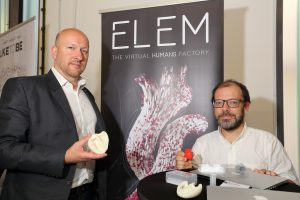
Virtual Heart is available in pre-release to our partners and internal project team. Over the next few months, we will focus our development efforts towards the user experience.
The solution is split into different components. The system we create is a software solution that requires supercomputer power to do it extremely fast and to a high degree of accuracy. We develop the simulation engine, the models to create the virtual patients and the interface to set up medical tests or experiments.
Today, a user can go online, log into our portal, and set up and launch cardiac electrophysiology analyses in the cloud.
What is the potential future of the medical industry with ELEM’s technology,?
The prospect for the industry is a complete transformation of the way medical testing, trials and approval are done. This means knowing early if a device or drugs will fail. Today, companies have to wait until a late stage of their trials to really know if something will work, investing a lot of time and money, as well as doing pre-clinical testing on animals. When these fail, it comes at a huge cost.
ELEM delivers extra capabilities. At the moment, medical devices are not tested with variation and diversity in mind, but on the computer, there’s no limit to how many tests you can do, making it work for everyone and treating more people, taking into account age, gender, ethnic groups, there is no limit. This will also enable businesses to get a much better understanding of where their treatments are most effective, and potentially to tune them so that they work better for patients.
The magic is that numerical simulation is predictive and it enables you to see things for the first time. Suddenly, your understanding of the problem improves, your ability to identify new solutions is increased, leading to massive productivity gains, better products with improved quality, efficacy and safety. Modelling and simulation is able to accelerate the approval process and the route to market for new products with all associated benefits.
 How did you enter SETsquared?
How did you enter SETsquared?
ELEM won a place in the Oracle Startup Accelerator programme. We were amongst the top six companies selected from approximately 180 applicants invited to join the OSCA programme. We became a SETsquared Bristol member as part of the 6 months residential Oracle programme. We have continued our membership and now have desks in the shared office in addition to our base at the Barcelona Supercomputer Centre (BSC). Since July, ELEM BioTech has an official permanent establishment in the UK.
How has SETsquared helped you?
Being surrounded with people who are on a similar journey – isolation is often a big issue for start-ups. It’s important to be able to take your head out of your own challenges. The SETsquared Entrepreneurs-in-Residence (EiRs), that follow your development on a regular basis, have been very useful as well as the business review panel (BRP) check points every few months, which are all about sharing and getting feedback from experienced people from various backgrounds. We’ve taken advantage of all the support, events, connections, clinics, training etc, that SETsquared facilitates. It’s great being able to have questions answered when you need them. For example, I met with a solicitor at one of the clinics recently, with a question around negotiating a contract, and literally within 10 minutes I was given a way to legally formulate it.
What partnerships/commercial relationships have you won so far?
ELEM is a spin-off from BSC. The activity that has led to the creation of the core tech started in 2005, with loads of different collaborations to get to the point where we are today. Businesses are an important part but also our relationships with hospitals, doctors, surgeons, for example, the Spanish National Center for Cardiovascular Research (CNIC), who have been instrumental in the development. We’ve also been working with the University of Minnesota and the Living Heart Lab.
We are waiting to hear from the British heart foundation regarding a project that will give us patient validation and lots more. Business wise, we have been spotted by the largest medical device company in the world. We have been working with them for research and are moving towards a commercial relationship. There are also smaller players, large SMEs in the medical space, like Fluidda and IVascular. We’re also in touch with different people at the Food and Drug Administration (FDA) in the US, and are part of a European lobby group that promotes modelling and simulation within the EU institutions and local governments.
Who is in your team?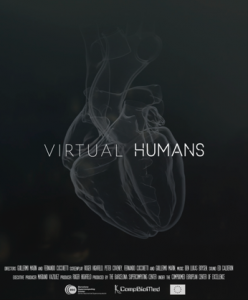
Mariano Vazquez, ELEM’s President and CTO, took leave from BSC to create ELEM. He joined BSC in 2005 along with ELEM’s Co-Founder, Guillaume Houzeaux to lead the team that was working on the computational mechanics technology for BSC. By 2018 they had secured 12.6 million Euros in funding to create the multi-physics code, for which we have been granted exclusive rights to commercialise and expand for the biomedical sector in ELEM. Our other founder is Jose Maria Cela, who is the director of the applications department at BSC. Romain Micol MBA, a medical doctor, is our non-exec director and a member of the board.
We have a team of 35 developers at BSC who are testing, validating and developing the technology. We also have a number of people that are part time, working on the heart, medical imaging and respiratory. We also have a part-time business support team and scientific advisors in the UK, Spain and US.
And what about yourself?
I’ve been working in emerging tech and businesses for a while, opening new markets by promoting simulation and numerical methods across many different industries including automotive, aerospace, defence and energy. I set up the French office of Altair Engineering Inc., and Samtech in the UK, which I directed until we were acquired. I also worked with Atos and Sogeti (Cap Gemini), heading global engineering strategy and directing Sogeti High Tech. Before drifting to the business side of tech, I started off as a techie in computational fluid dynamics and specialised in numerical optimisation. My background is aeronautics and I spent 20 years in aero and mechanical industries, always in touch with disruptive software applications and changing, hopefully improving how things were designed and made, and how people worked. 5 or 6 years ago I turned to health and digital health applications, actually driven by the opportunities to make an even greater difference whilst making good business.
Are you looking for investment?
So far, 3 million euros has been secured by our BSC team to develop the technology over the next few years, and 1.6 million in the next 2 years is going towards development of the bio-modules. ELEM is currently looking for investment. We have a fully integrated prototype but need to enhance the user experience. So we’re looking at raising 2.75 million to industrialise the product, create the UX, to make the product more robust, to work on validation, and also to cover some parts of the bio side, to enhance the anatomy. We need support to go to market with the virtual heart over the next 18 to 21 months, including commercialisation, as well as branding, marketing and Intellectual Property (IP).
Why should people invest? There is no doubt that modelling, simulation and virtual trials are at the heart of tomorrow’s medicine. The FDA has publicly recognised the benefits. It’s key to how treatments are designed to be more personalised and precise, and to address bottlenecks in approvals.
What are your next steps?
To get the investment to be able to deploy the product and make it available to the industry. There will be several releases for the different types of usages in the next couple of years.
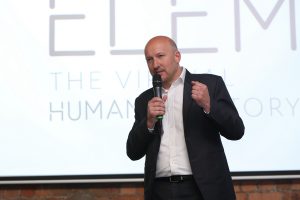 What is the one piece of advice you can give to other aspiring founders?
What is the one piece of advice you can give to other aspiring founders?
There is loads! But the first thing to know before starting, is that you will be engaging in an emotional roller coaster ride! You’ll have good and fast days, but some will be slow and difficult, but it’s normal! Whatever you do, it always takes longer than you think! You get loads of advice all the time, it’s hard to know which is good and which is bad. The best way to go about it is to know why you are doing it, very early on.
You should always have a purpose that is greater than yourself or your company, that’s the one thing that you’ll be able to hang onto when you’re in doubt. Enjoy the roller coaster ride!
And what’s motivating you?
Our mission is to transform the way medical innovation, preclinical and clinical testing, regulatory approval and treatment decisions are made; to make it work for all – free of age, race, gender biases – by providing deeper medical insights faster and earlier in the process using Virtual Humans, predictive modelling, and machine learning. We want to make medical testing work for every patient group – that is why we’re doing it. The big vision is to be well, able and active for life. Technology is the way to achieve that.
Discover more of the companies SETsquared incubate here and sign up to the monthly SETsquared newsletter to keep up with news, events, opportunities and more.
Recent News, Blogs and Stories
